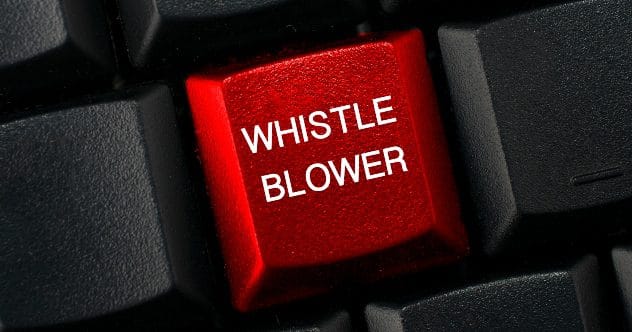Whistleblowers often risk everything – their careers, reputations, and sometimes even their lives. But thanks to their incredible courage, truths that would otherwise remain hidden come to light. These individuals expose significant scandals and wrongdoings, sometimes of a truly shocking nature. Their bravery can lead to justice and vital changes. Let’s explore 10 significant revelations we only know about because of these courageous people.
10 Herbert von Bose: Unmasking Early Nazi Horrors
Long before the full scale of Nazi atrocities was widely known, Herbert von Bose worked to expose them. As chief of publicity for Adolf Hitler’s Vice-Chancellor, Franz von Papen, he had an insider’s view. Von Bose, born in 1893, despised Hitler and the Nazi Party. He used his position to leak information about the government’s dark secrets to the international press, specifically the London-based publication The Week.
His goal was to alert the world to the Nazi regime’s hidden crimes. Sadly, his bravery cost him his life. On June 30, 1934, S.S. men assassinated him in his office. This was part of the Night of the Long Knives, a brutal purge of Hitler’s political opponents.
9 James Bobreski: Exposing Dangerous Chlorine Storage
In 1999, James Bobreski, a technician at the D.C. Water and Sewer Authority’s Blue Plains plant, blew the whistle. He raised alarms about faulty chlorine gas detectors and the illegal storage of over 100 tons of liquid chlorine. When he tried to get managers to fix these dangerous issues, he faced retaliation and was fired.
Authorities initially dismissed Bobreski as a troublemaker. However, a Labor Department investigation later confirmed his claims. It found he had correctly warned about the risk of a major chlorine gas leak from the facility, which served two million people. The court ruled he was wrongfully fired. Thanks to his actions, the liquid chlorine was removed, and the D.C. Water and Sewer Authority had to pay him $56,000 in damages plus legal fees.
8 Jan Karski: Witness to the Holocaust
Jan Karski, a courier for the Polish government-in-exile, was one of the first to provide firsthand evidence of Nazi crimes. He witnessed the horrors of the Warsaw ghetto and the deportation of Jews to extermination camps. When World War II began, Karski joined the Polish army but was captured by the Germans. He escaped and joined the Polish underground resistance.
As a messenger, he saw the brutal conditions imposed by the Germans, leading to mass deaths from starvation and disease. Karski bravely traveled through German-occupied Europe to London. There, he reported to the Polish government-in-exile and British officials, showing terrifying proof that Nazi Germany was systematically murdering Jews. He even met with U.S. President Franklin D. Roosevelt. Despite his pleas for specific actions to save Jewish lives, Allied leaders prioritized military victory over Germany.
7 Perry Fellwock (Winslow Peck): Unveiling NSA’s Project ECHELON
Using the pseudonym Winslow Peck, NSA intelligence analyst Perry Fellwock revealed shocking surveillance tactics. In an interview with Ramparts magazine, he exposed Project ECHELON, a top-secret global mass surveillance system. This program allegedly used large ground-based antennas to intercept satellite signals, capturing digital communications of millions.
ECHELON would then sift through messages using dictionaries of keywords. For over fifty years, this system supposedly gave the U.K., U.S., Canada, Australia, and New Zealand the power to spy on both enemies and allies. At the time of Fellwock’s revelations, the NSA was a little-known and highly secretive agency. He reported that its budget was even larger than the CIA’s. His claims of a vast, secret organization were so astounding that many didn’t believe them for decades.
6 Vladimir Bukovsky: Exposing Soviet Psychiatric Abuse
Under Leonid Brezhnev, the Soviet Union used psychiatry as a tool to silence political dissidents. In 1971, whistleblower Vladimir Bukovsky smuggled a 150-page dossier to the West, detailing this political abuse of psychiatry. He gave it to The New York Times. The materials included photocopies of forensic reports on well-known Soviet dissidents.
Bukovsky, a human rights activist and Soviet dissident himself, spent 12 years in Soviet prisons, labor camps, and psychiatric institutions due to his activism. He was a prominent figure in the Soviet dissident movement from the late 1950s to the mid-1970s. Even after being expelled from the Soviet Union in 1976, Bukovsky continued to criticize the Soviet system and its successors in Russia.
5 W. Mark Felt, Sr. (“Deep Throat”): Uncovering the Watergate Scandal
In June 1972, five burglars were caught breaking into the Democratic Party’s offices at the Watergate Hotel. This event kicked off one of the biggest political scandals in U.S. history. Throughout the 1972 presidential campaign, The Washington Post received leaks from a secret source known only as “Deep Throat.” Decades later, this source was revealed to be FBI deputy director W. Mark Felt, Sr.
Felt’s information revealed crucial details:
- Direct involvement of President Nixon’s confidants in the Watergate affair.
- Illegally laundered campaign funds financed the break-in and wiretapping.
- The bugging was part of a larger political surveillance and sabotage operation orchestrated by White House officials for Nixon’s re-election.
Despite mounting evidence, Nixon and his advisors denied any government involvement. Nixon won re-election in November 1972. However, during the burglars’ trial in 1973, the existence of secret recordings of Oval Office conversations came to light. After a legal battle, Nixon was forced to release the tapes, which proved his role in the cover-up. Facing impeachment, Nixon resigned on August 8, 1974.
4 Ralph Walter McGehee: Revealing CIA’s Covert Actions in Asia
Ralph Walter McGehee, a former CIA case officer, became highly critical of the agency based on his experiences in East and Southeast Asia. He publicly shared his concerns. McGehee stated that the CIA suppressed his reports about significant communist support in northeastern Thailand. He found that the Communist Party was building a “mass-based revolutionary movement,” not just scaring people into submission.
He also came to believe the CIA deliberately manipulated intelligence to support the White House’s political agenda, especially to bolster support for the Vietnam War, even as the situation worsened. One of McGehee’s most startling claims, later censored by the CIA, concerned the agency’s role in the Indonesian mass murders of 1965–1966, which resulted in the deaths of 500,000 to over a million people, largely targeting communists and sympathizers.
3 Duncan Edmonds: Exposing a Canadian Official’s Security Risk
Sometimes, a whistleblower reveals a lapse in judgment that poses a significant security threat. Canadian civil servant Duncan Edmonds found himself in such a situation. He informed his superior that Minister of Defense Robert Coates had visited a West German strip club while on official business. Critically, Coates was also carrying NATO documents at the time.
This revelation led to Coates’s resignation in early 1985. However, Prime Minister Brian Mulroney was reportedly furious with Edmonds for blowing the whistle. Edmonds was fired and declared unwelcome within the administration. This incident, early in Mulroney’s term, hinted at future scandals that would plague his government.
2 Mordechai Vanunu: Revealing Israel’s Nuclear Program
In 1986, Mordechai Vanunu leaked details of Israel’s nuclear weapons development to the British press. Before his disclosures, Israel maintained a policy of “nuclear ambiguity,” neither confirming nor denying its nuclear capabilities. Vanunu, who worked inside the Negev Nuclear Research Center, a facility involved in nuclear weapons development, secretly took 57 photographs.
His actions had severe consequences. Israeli intelligence agents lured him to Italy, where he was drugged and kidnapped. Vanunu was taken back to Israel, tried in secret, and imprisoned for 18 years, over 11 of which were in solitary confinement. Even after his release, restrictions were imposed on him, including a ban on leaving Israel and speaking to foreigners. While Israel considers him a traitor, many in the international community view Vanunu as a whistleblower. He received the Right Livelihood Award in 1987 for his courage.
1 Frances Haugen: The Facebook Files Leak
In 2021, Frances Haugen, a former product manager in Facebook’s civic integrity department, leaked hundreds of internal documents. These papers covered user research, hate speech, special policy exceptions for high-profile users, and more. She provided this information, dubbed the “Facebook Files,” to the U.S. Securities and Exchange Commission and The Wall Street Journal.
The leaked reports showed, through Facebook’s own internally commissioned research, that the company was aware of Instagram’s negative impact on teenage users. They also knew about Facebook’s role in contributing to violence in developing countries. Other findings from the leak included the platform’s influence in spreading misinformation and boosting posts that provoke anger. Furthermore, it was reported that Facebook’s algorithms promoted harmful content to young users, such as posts about anorexia and images of self-harm.
These ten stories represent just a fraction of the impactful revelations made by whistleblowers throughout history. Their courage to speak out against powerful entities has often led to significant changes, policy reforms, and a greater public understanding of critical issues. While they frequently face personal hardship for their actions, their contributions to transparency and justice are undeniable.
What other whistleblower stories do you find most impactful? Share your thoughts and leave your comment below!










